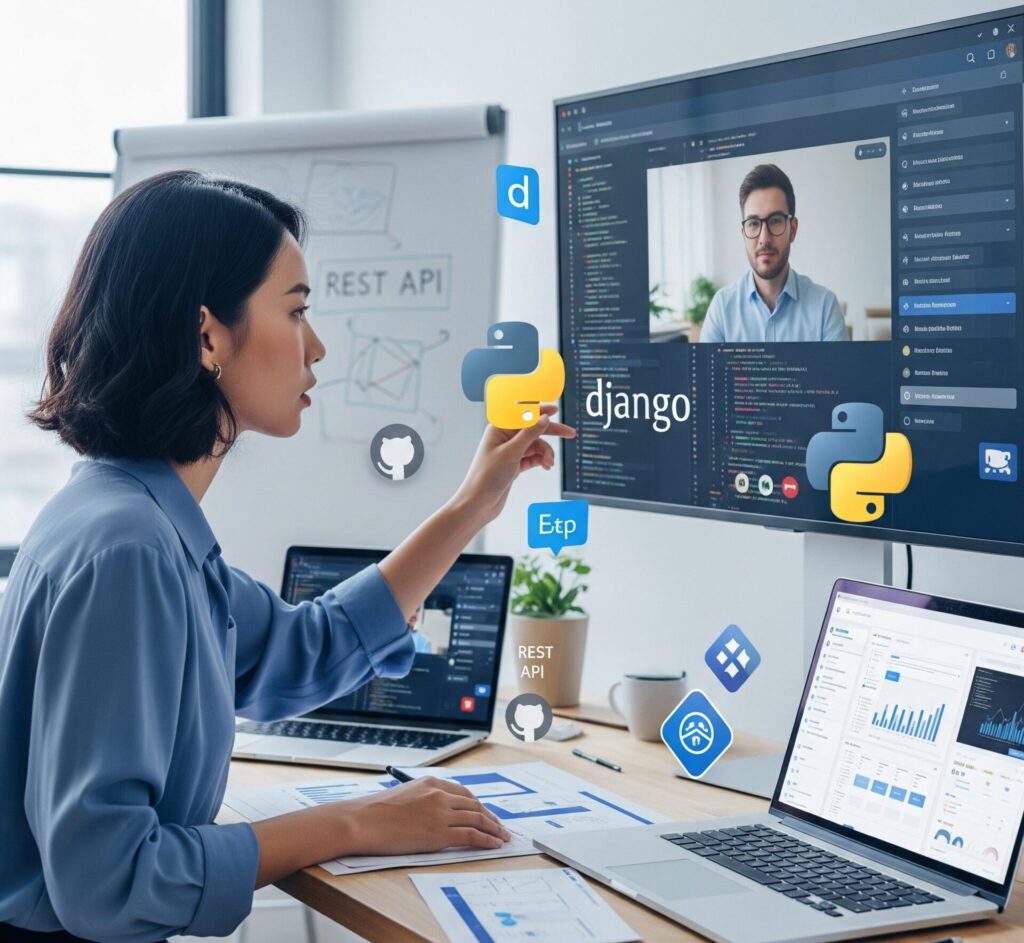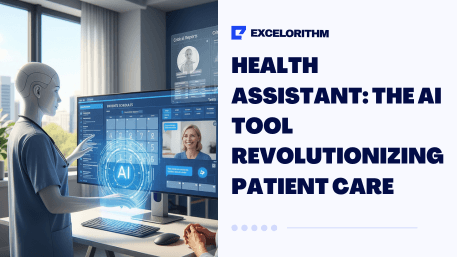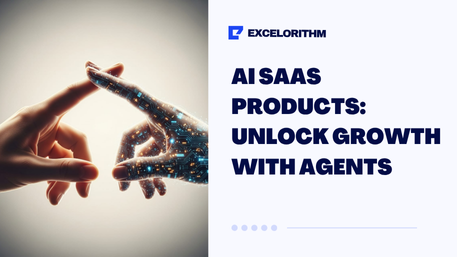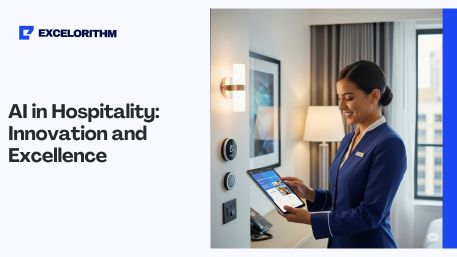
Introduction: Hiring Django Developers Isn’t Just About Writing Code
When businesses look to hire Django developers, the focus often falls solely on coding skills. But in today’s fast-paced digital landscape, that’s a risky oversimplification. Django isn’t just a framework—it’s a full-stack powerhouse that demands both technical precision and strategic thinking. Whether you’re launching a startup, scaling an enterprise platform, or modernizing legacy systems, the developer you choose can shape the architecture, security, and long-term success of your product.
The reality is, when you hire a Django developer, it involves far more than reviewing GitHub commits or checking off a list of programming languages. You need someone who understands the intricacies of scalable backend systems, collaborates effectively with front-end teams, and proactively solves real-world problems.
This guide is for startup founders, CTOs, and technical hiring managers who want to go beyond the resume and make smart, impact-driven hiring decisions. Let’s explore what truly matters when you set out to hire Django developers—and how to avoid costly missteps.
1. Strong Python Fundamentals: The Foundation for All Django Expertise
To hire Django developers who can make a meaningful impact, you must prioritize deep Python expertise. Django is built entirely on Python, and without a strong grasp of the language, even experienced developers can struggle with framework-specific tasks. The best Django developers don’t just know how to write Python—they understand how to use it effectively to build scalable, secure, and maintainable backend systems.
When you’re looking to hire a Django developer, evaluate their command of Python’s core features: object-oriented programming, data structures, exception handling, and built-in modules. These are foundational for working with Django’s ORM, views, serializers, and middleware layers. A skilled Python and Django developer can optimize performance, reduce redundancy, and architect clean code structures that evolve with your project.
Don’t settle for someone who learned Python just to use Django. Seek candidates who are Python-first programmers—because when Python proficiency is second nature, Django development becomes significantly more efficient and reliable.
1.1. Familiarity with Key Libraries and Modules
Hiring Django developers with surface-level Python knowledge is risky—especially if they aren’t fluent in using Python’s rich ecosystem of libraries and modules. Beyond Django’s built-in features, look for developers comfortable leveraging Python’s rich ecosystem of libraries and modules. This includes familiarity with:
- Pandas for data manipulation
- Requests for handling HTTP calls
- NumPy for numerical computations where performance matters
- Built-in modules like datetime, json, and os for managing timestamps, parsing data, and automating tasks. They help developers manage timestamps, parse data, automate tasks, or configure environment-specific settings—all without reinventing the wheel. Familiarity with these tools streamlines development and allows your team to ship faster while maintaining high-quality standards.
When you hire Django developers, look for evidence of practical experience with these libraries—through GitHub repos, code samples, or technical interviews. A developer’s ability to pick the right library for the job shows not just Python knowledge, but real-world problem-solving acumen.
2. Mastery of Django Framework and Core Components
- Django’s ORM (Object-Relational Mapper) for interacting with databases using Python classes.
- The model-view-template (MVT) structure, which separates business logic, user interface, and data representation.
- Django’s admin interface for rapid back-office operations.
- Middleware, signals, forms, class-based views, and custom managers for handling complex logic and workflows.
2.1. MVC vs MVT: Conceptual Clarity
One common area of confusion—even among intermediate candidates—is the difference between MVC (Model-View-Controller) and Django’s MVT (Model-View-Template) architecture. When you hire Django developer, ensure they can explain this distinction clearly, as it reflects their understanding of how Django is designed to function.In Django’s MVT:- Model handles data and business logic (same as MVC).
- View is the Python function or class that processes user requests and sends responses (acts as the “controller”).
- Template is the presentation layer (what users see), corresponding to the “view” in MVC.
3. Hands-On Experience with RESTful API Development
One of the most important reasons companies hire Django developers today is to build robust backends for APIs. Django, paired with Django REST Framework (DRF), is a powerful combination for delivering scalable and secure RESTful services that support web and mobile applications alike.
When evaluating candidates, look for practical experience creating APIs using DRF—particularly how they handle serialization, authentication, pagination, and API versioning. Skilled Python and Django developers understand how to expose database models as secure endpoints and how to handle common RESTful patterns (GET, POST, PUT, DELETE) with elegance and clarity.
A qualified developer Django professional will also understand API documentation tools like Swagger/OpenAPI and be capable of writing custom endpoints to meet business-specific logic. This is essential if you’re building a decoupled frontend or mobile app infrastructure.
In short, the ability to build and manage RESTful APIs is a must-have skill if you’re aiming to hire Django developers who can support your full product lifecycle.
4. Practical Knowledge of Front-End Technologies
While Django is primarily a backend framework, the best results happen when backend and frontend work harmoniously. That’s why it’s critical to hire Django developers who have a solid understanding of frontend fundamentals like HTML, CSS, and JavaScript.
Even though Django handles server-side rendering, many modern applications use JavaScript frameworks like React or Vue for dynamic frontend experiences. A capable Django developer should know how to integrate backend logic with frontend code, manage static files, and use Django’s templating system effectively.
When developers understand the user-facing layer, they write cleaner APIs, structure views more intuitively, and contribute meaningfully to UX discussions. This synergy is especially important in agile environments where tight collaboration between designers, frontend devs, and backend engineers is key.
By prioritizing frontend fluency when you hire Django developers, you ensure smoother handoffs, faster iterations, and a more cohesive product experience overall.
5. Database and ORM Proficiency: Essential When You Hire Django Developers
A Django developer’s effectiveness hinges on their ability to interact with data—and that’s why strong database and ORM skills are critical. When you hire Django developers, you’re not just hiring someone to write Python—you’re hiring someone who can architect, access, and manipulate relational databases seamlessly using Django’s ORM (Object-Relational Mapping).
Top-tier Python and Django developers know how to design normalized database schemas, use migrations effectively, and ensure data integrity throughout the project lifecycle. They should have hands-on experience with PostgreSQL, MySQL, or SQLite, and know how to manage complex relationships (foreign keys, many-to-many fields) within Django models.
Great developers also understand the balance between Django’s abstraction and raw SQL, using each where appropriate. If you’re building a data-heavy product or managing user-generated content at scale, database efficiency will be mission-critical.
To hire Django developers that deliver long-term value, make sure they can handle more than just queries—they should know how to structure data to scale.
5.1. QuerySet Mastery and Data Optimization
Understanding Django’s QuerySet API is essential for building fast, efficient applications. When you hire Django developer, evaluate how well they use QuerySets—not just for fetching data, but for optimizing performance, reducing database hits, and structuring complex logic cleanly.
Look for developers who:
- Use select_related() and prefetch_related() properly to avoid the N+1 query problem.
- Chain QuerySets efficiently using filter(), exclude(), annotate(), and aggregate() to compute results at the database level instead of in Python.
- Apply values() or only() to limit data payload when full model instances aren’t needed.
- Understand lazy vs. evaluated queries and can debug inefficient lookups.
A knowledgeable developer Django specialist will write ORM code that’s not only correct, but also fast and scalable under real-world load. If you’re building an app where performance matters (e.g., dashboards, search, reports), you can’t afford to skip this step when you hire Django developers.
6. Version Control Fluency, Especially with Git
In modern software development, version control is essential, not optional. A skilled team member must demonstrate fluency with Git, the most widely used system for managing source code across collaborative environments.
Look for candidates who:
- Know how to create and manage branches effectively.
- Use pull requests and code reviews as part of a quality workflow.
- Handle merge conflicts and rollback operations confidently.
- Are familiar with Git-integrated CI/CD pipelines like GitHub Actions or GitLab CI.
In Django projects, where small changes in models or migrations can affect the entire codebase, structured version control ensures stability. A developer who writes great code but lacks Git proficiency introduces risk and inefficiency.
Strong version control habits also indicate professional discipline, helping teams deploy confidently, troubleshoot easily, and scale without bottlenecks. If you’re hiring a Django developer, Git fluency should be a basic requirement—not a bonus skill.
7. Security-First Approach: A Key When You Hire Django Developers
Security should be a top priority in every web application—and Django is no exception. While the framework offers many built-in protections, they are only effective if the developer knows how to apply them properly.
Your ideal candidate must:
- Understand and enforce CSRF, XSS, and SQL injection prevention.
- Use Django’s built-in authentication and permission system securely.
- Safeguard API endpoints and user input validation.
- Know how to configure secure cookies, HTTPS settings, and CORS headers.
- Regularly update dependencies and monitor for known vulnerabilities (CVEs).
Neglecting security can expose your product to data breaches, legal liabilities, and user distrust. A strong Django developer takes a proactive approach—thinking about security from day one, not as an afterthought.
Hiring someone who’s mindful of best practices ensures your web application remains resilient, compliant, and trustworthy—even under growing traffic and scrutiny.
8. Test-Driven Development (TDD) and Debugging Discipline
Building reliable software requires more than just writing code—it demands a commitment to writing tests before features. That’s the foundation of Test-Driven Development (TDD), a practice that ensures each component behaves as expected from the start. When evaluating a candidate, look for a developer Django who not only knows how to write tests but sees testing as a core part of development—not an afterthought.
Your ideal hire should be skilled in:
- Writing unit tests, integration tests, and functional tests using Django’s built-in testing framework.
- Using tools like pytest, coverage.py, or factory_boy for deeper test coverage.
- Practicing TDD for models, forms, views, and APIs.
- Debugging using breakpoints, logging, and Django’s debug toolbar.
Beyond testing, debugging discipline separates a competent developer from a great one. Instead of trial-and-error fixes, they investigate issues methodically, use logs effectively, and work to eliminate root causes. This not only leads to more stable code but saves time and reduces bugs in production.
9. Problem-Solving and Analytical Thinking
Technology changes quickly, and no framework—even Django—can anticipate every real-world challenge. That’s why analytical thinking and proactive problem-solving are critical traits when hiring technical talent. The best Django developers aren’t just coders—they’re builders who anticipate edge cases, design for scalability, and troubleshoot before issues become crises.
What should you look for?
- A clear, structured approach to solving problems under pressure.
- Confidence working through ambiguous requirements or legacy codebases.
- The ability to break down large tasks into smaller, testable parts.
- Creativity in finding technical solutions that align with business goals.
In interviews, present practical scenarios—API performance bottlenecks, broken migrations, or poorly structured queries. A standout developer Django will ask clarifying questions, think aloud, and explain both their logic and alternatives.
In a fast-paced startup or scale-up, it’s not the developer who writes the most code—it’s the one who solves the right problems quickly and clearly who drives product velocity.
10. Portfolio, Real-World Experience, and Open Source Contributions
When you’re evaluating candidates, nothing speaks louder than proof of execution. A polished portfolio, real-world project experience, or contributions to open-source libraries gives immediate insight into a developer’s competence and work ethic. Whether you’re hiring for an internal product or a client-facing solution, these assets showcase more than just skills—they reveal problem-solving ability, creativity, and accountability.
Look for:
A GitHub or GitLab profile with recent, relevant repositories.
Live project demos or links to apps they’ve built or contributed to.
Experience working on teams and deadlines, not just solo side-projects.
Contributions to Django packages, documentation, or plugins that reflect deeper ecosystem involvement.
These indicators help you validate whether a developer Django hire has the practical experience to build scalable, production-grade applications—not just pass a coding test.
Real-World Mistakes: What Happens When You Hire the Wrong Django Developer
The wrong Django hire doesn’t just stall development—it can derail entire product timelines. We’ve seen startups waste months rebuilding poorly designed databases, patching insecure APIs, or untangling spaghetti code written without any architectural thought. Developers who lack understanding of Django’s ORM often overload the database with inefficient queries, causing apps to slow under minimal load.
Others overlook security best practices, exposing applications to threats like CSRF and SQL injection. Then there are those who can’t communicate or work in Agile teams, creating silos and missed deadlines. These aren’t hypothetical risks—they’re common, costly realities. That’s why taking shortcuts when you hire Django developers often leads to long-term technical debt, higher churn, and frustrated product teams.
The Future of Django Development: Skills to Watch For in 2025 and Beyond
As technology evolves, so do the expectations from Django developers. In 2025, the most valuable Django talent will go beyond the basics. Expect demand to grow for developers who understand asynchronous Django with async views, event-driven architecture, and real-time capabilities using WebSockets. Knowledge of Docker and Kubernetes will be essential for scalable deployments, especially in SaaS and enterprise contexts.
Developers will also need to integrate Django with AI/ML pipelines or headless frontend frameworks like React and Vue for modern, modular applications. Those who master GraphQL and API-first design patterns will have a clear edge. In short, to hire Django developers who remain relevant, look for learners—not just coders. Adaptability will be their most valuable long-term skill.
Frequently Asked Questions
1. What does a Django developer do?
A Django developer builds the backend of web applications using the Django framework. They handle database models, server-side logic, REST APIs, and integrate frontend components. Their responsibilities often include performance optimization, testing, deployment, and ensuring code security.
2. Is Django front-end or backend?
Django is primarily a backend framework built on Python. It handles databases, server logic, and application workflows. However, it includes a templating engine for basic frontend rendering and can be paired with modern JS frameworks for full-stack development.
3. What is Django mostly used for?
Django is commonly used to develop web applications, APIs, admin dashboards, and content management systems. It’s especially suited for rapid development of scalable, secure apps. Businesses use Django to build SaaS platforms, portals, and data-driven web tools.
4. How do I assess the skills of a Django developer during hiring?
Review portfolios, GitHub projects, or give small coding challenges focused on Django’s core features. Ask scenario-based technical questions during interviews. Also evaluate their ability to work in teams, solve problems, and adapt to your stack.
Conclusion: Hiring for Impact, Not Just Technical Fit
Hiring the right developer isn’t about checking off a list of technical skills—it’s about finding someone who can meaningfully contribute to your product’s evolution. As you work to hire Django developers, remember that impact comes from a mix of core competencies, soft skills, and adaptability. A developer may know Django inside-out, but without curiosity, clear communication, and the ability to grow with your business, even strong coding skills can fall short.
Look for someone who aligns with your company culture, understands your users, and can collaborate with both technical and non-technical teams. Prioritize those who take ownership of their work, write maintainable code, and keep security and scalability in mind from day one.




